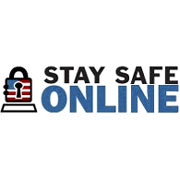
|
contents | business | |||||||
| The Fresh National Cyber Security Alliance and CA's Survey Reveals that Users Practice a Risky Online Behavior  Kicking off October as National Cyber Security Awareness month, CA and the National Cyber Security Alliance have revealed results of the first social networking study examining the link between specific online behaviors and the potential for becoming a victim of cyber-crime. Although social networking sites, such as MySpace and FaceBook, have been examined from the standpoint of physical security issues, including sexual predators, this survey examines users' online behavior and the possibility of other threats such as fraud, identity theft, computer spyware and viruses. Kicking off October as National Cyber Security Awareness month, CA and the National Cyber Security Alliance have revealed results of the first social networking study examining the link between specific online behaviors and the potential for becoming a victim of cyber-crime. Although social networking sites, such as MySpace and FaceBook, have been examined from the standpoint of physical security issues, including sexual predators, this survey examines users' online behavior and the possibility of other threats such as fraud, identity theft, computer spyware and viruses.Highlights of the survey include: - Although 57 percent of people who use social networking sites admit to worrying about becoming a victim of cyber-crime, they are still divulging information that may put them at risk. For example 74 percent have given out some sort of personal information, such as their e-mail address, name and birthday. - 83 percent of adults social networking are downloading unknown files from other people's profiles potentially opening up their PCs to attacks. - 51 percent of parents aware of their children social networking do not restrict their children's profiles so only friends can view, leaving their child's profiles unrestricted to potential predators. - Furthermore, 36 percent of these parents surveyed do not monitor their children on social networking sites at all. In contrast to the popular perception that social networking is an activity enjoyed almost exclusively by tweens and teens, the CA/NCSA social networking research study reveals a large number of adults (48 percent), 18 plus, social network. It is not just young adults social networking, 53 percent of adults who use social networking sites are over the age of 35. The growing number of adults using social networking sites is an indicator of the increasing popularity-and potential security risks-of these sites. The CA/NCSA survey also has revealed users of social networking sites are not only giving out potentially harmful information, but they are also engaging in other risky behaviors, such as downloading unknown files and responding to unsolicited emails and instant messages, all of which may lead to identity theft, computer spyware, viruses and other risks. 83 percent of social networking participants have downloaded content from another user's profile. 31 percent of adults who use social networking sites have responded to phishy unsolicited email or instant messages. Adults who use social networking sites may be putting themselves at risk, and may be placing their businesses and places of employment in harm's way. Of those who have access to a computer at work, 46 percent engage in social networking at the office, potentially making the workplace vulnerable to online security threats. On an encouraging note, the survey revealed that adults are taking safety precautions with their children. Of the parents that know their children under 17 use social networking sites, 64 percent monitor their children's profiles and 49 percent have only allowed their children's profile to be seen by his/her friends. Many adults have discussed safety precautions with their children: 94 percent have discussed how to watch for predators, 72 percent have discussed how to watch out for malicious software and 64 percent have discussed how to watch out for fraudsters trying to steal money. In order to protect yourself, follow the NCSA and National Consumers League's pointers to stay safe while on social networking sites: - Guard your financial and other sensitive information. Never provide or post your Social Security number, birth date, address, phone number, bank account or credit card numbers, or other personal information that could be used by criminals. - Picture social networking sites as billboards in cyberspace. Police, college admissions personnel, employers, stalkers, con artists, nosy neighbors - anyone can see what you post. - Be cautious about meeting your new cyber friends in person. After all, it's hard to judge people by photos or information they post about themselves. - Think twice before clicking on links or downloading attachments in emails. They may contain viruses or spyware that could damage your computer or steal your personal information-including your online passwords and account numbers. - Protect your computer. Use a spam filter, anti-virus software, anti-spyware software and firewall. - Beware of con artists. Criminals scan social networking sites to find potential victims for all sorts of scams, from phony lotteries to bogus employment and business opportunities to investment fraud. This research was conducted as part of the Russell Omnibus conducted by Russell Research of New York, NY. Interviewing was conducted August 25 - 28, 2006 and September 5 - 7, 2006. They interviewed 2, 163 adults 18 years old and over. The sample was weighted to provide a national representative and projectable estimate of the adult population. Sampling error for a survey of this size is 2.1 percent at the 95 percent level of confidence. write your comments about the article :: © 2006 Computing News :: home page |